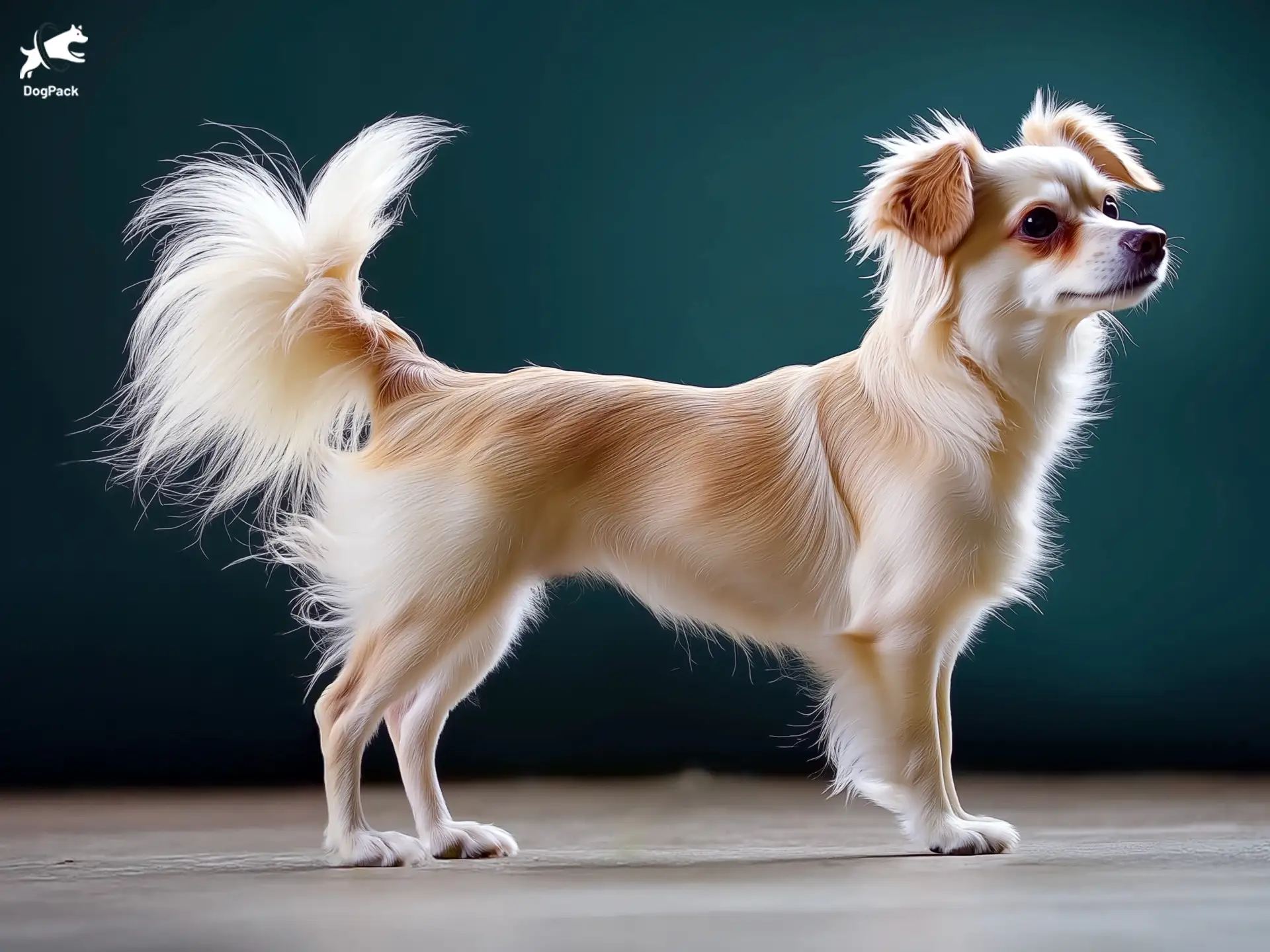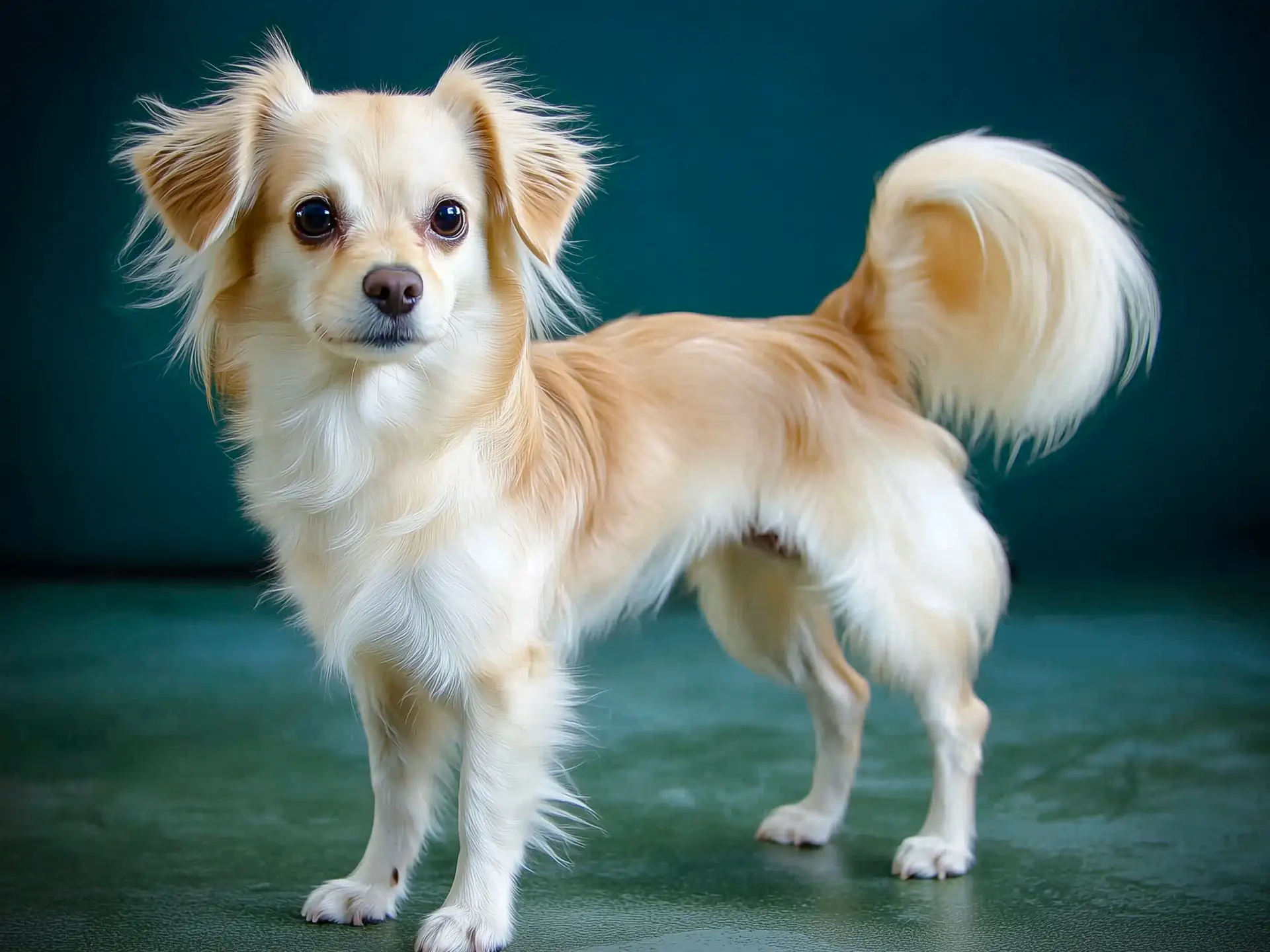Kokoni Dog Breed Info & Overview
Compact, cheerful, and full of heart—this Greek companion never fails to brighten a room. Known for its playful energy and affectionate nature, the Kokoni bonds closely with humans. Its small size is ideal for those seeking a dog that fits comfortably into apartment living. Intelligent yet laid-back, it’s no wonder this breed has captured hearts across Greece and beyond.
Characteristics
Pictures
Breed History
Stories tell of small companion dogs roaming ancient Greek villages, and the Kokoni is believed to be a modern-day reflection of these early canines. Often found accompanying sailors on fishing boats, these dogs were prized for their alertness and loyalty. Historians suggest that their name, “Kokoni,” references their petite form, as “kokonas” in Greek can refer to something small or darling.
Over centuries, rural households relied on these dogs to guard livestock and deter pests with their keen senses. While larger breeds garnered more attention globally, this tiny Greek treasure remained a well-guarded secret, nurtured by local families. Despite limited formal recognition, enthusiasts across Greece championed its distinct features and preserved it through selective breeding practices grounded in tradition.
Today, the Kokoni symbolizes heritage and warmth in its homeland, cherished for its steadfast loyalty and endearing nature. Although not widely acknowledged by major international kennel clubs, it enjoys a strong presence in Greek dog shows and competitions. Its journey from humble seafaring companion to beloved household pet underscores the breed’s resilience and its longstanding bond with humans.
Temperament, Personality
Sweet-natured and eager to please, this Greek companion welcomes guests as though they’ve arrived for a personal pup party. It thrives on human interaction, often seeking extra cuddles or belly rubs. Families adore the breed’s ability to adapt quickly to new situations, making it a gentle and reassuring presence around children or newcomers.
Because of its sociable nature, the Kokoni seamlessly integrates into multi-pet households. It typically coexists peacefully with cats and other small dog breeds, provided early socialization occurs. Always curious about the world, it loves to explore but also knows how to lounge contentedly at home, soaking up quality time with family members.
When meeting strangers, it may bark initially—more out of excitement than aggression. A friendly greeting or gentle approach quickly shifts any hesitance into wagging enthusiasm. Overall, the breed is confident yet composed, balancing liveliness with a loyal devotion that’s hard to resist.
Physical Characteristics
Sturdy yet delicate, the Kokoni flaunts a compact frame that radiates charm. Its almond-shaped eyes gleam with a curious spark, reflecting an ever-present readiness for a new adventure. The breed’s coat can be slightly wavy or straight, usually medium in length with a soft undercoat to keep it cozy in cooler weather.
Coat colors vary widely, from gleaming white to tan, black, or even parti-colored combinations. This diversity stems from regional breeding practices, where function and temperament took priority over uniformity. Though its appearance can differ in subtle ways, a hallmark trait remains the lively tail—often carried high and curved over the back, signaling confidence and joy.
Overall, the Kokoni possesses a balanced physique, neither too delicate nor overly muscular. Its small stature makes it suitable for apartments, but it’s also agile enough to roam backyards happily. Whether trotting along a city sidewalk or accompanying its owner on a countryside stroll, this breed carries itself with notable poise and an infectious zest for life.
Health Issues
Like many smaller dogs, this Greek companion can be prone to dental concerns if regular cleanings are neglected. Plaque buildup and periodontal problems may emerge without routine brushing. Vet checkups, along with yearly professional teeth cleaning, help keep that bright smile in top shape.
Patellar luxation is another condition occasionally noted, where the kneecap slips out of place. Prompt veterinary attention can address mild cases with special exercises or therapy, while more serious cases might require surgery. To minimize stress on the joints, moderate exercise routines and a healthy diet prove beneficial.
Although generally robust, the Kokoni benefits from a balanced lifestyle that includes regular vet visits for preventive care. Screenings for inherited issues, like heart murmurs, can catch problems early. Staying on top of vaccinations, parasite prevention, and weight management ensures a long, wagging life for this cheerful, small-breed companion.
Grooming Needs
Maintaining that plush coat doesn’t have to be a chore. A weekly brushing session is typically sufficient to prevent tangles and matting, especially if your pup’s fur leans toward the longer, wavy side. Use a pin brush or soft slicker brush to gently remove dead hairs and debris.
A bath every four to six weeks keeps the coat shiny and fresh, but be mindful of using gentle, dog-specific shampoos to avoid skin irritation. Regular nail trims are essential—especially since this breed’s active nature can result in nails wearing unevenly. Keep an eye on ear cleanliness, too, checking for wax buildup or redness.
The Kokoni enjoys the pampering process when introduced positively. Use treats or praise during grooming sessions to make it a bonding experience rather than a battle. Owners who keep up with consistent brushing, occasional hair trims, and proper ear care will find that their little Greek friend maintains a healthy, well-kept appearance without excessive effort.
Exercise Requirements
Though not a high-energy breed, this companion still needs daily activity to stay healthy and entertained. Short walks around the block or playful fetch games can go a long way. Many owners notice that frequent short bursts of movement match the dog’s moderate stamina better than a single lengthy walk.
Enrichment activities, like puzzle toys or hide-and-seek, keep that curious brain engaged. If you have a fenced yard, supervised playtime allows the dog to explore safely without straying too far. Additionally, consider short hikes or even a romp at a small dog park to satisfy its inquisitive spirit.
With consistent, moderate exercise, the Kokoni remains toned and happy, making it a good fit for seniors or first-timeowners. Overexertion can stress tiny joints, so it’s best to keep an eye on energy levels and let your pup rest between play sessions. A balanced schedule of fun and relaxation supports both body and mind.
Training Tips
This breed responds positively to upbeat, reward-based training methods. Start with short sessions focusing on one command at a time, using treats or praise to reinforce good behavior. Consistency and patience yield the best results; negative tactics can make the Kokoni wary or stubborn.
Because it’s an intelligent pup, early socialization is key. Introduce your dog to a variety of situations, such as meeting other small dog breeds or visiting new environments. This proactive approach reduces the likelihood of anxiety or excessive barking down the road, especially in unfamiliar places.
Basic obedience commands—like “sit,” “stay,” and “come”—serve as a solid foundation for more advanced training. Incorporating fun tricks, like “spin” or “shake,” also stimulates this clever companion. Keep sessions brief, ending on a high note to maintain enthusiasm. When tackled with a mix of kindness and creativity, training fosters a confident, well-mannered pet.
Nutrition, Diet
The Kokoni’s heritage as an alert, seafaring companion suggests it does well with protein-rich meals that support lean muscle. A small-breed kibble formula with around 25% protein (or slightly higher) can help sustain energy without overloading calories. Prioritize high-quality meat sources over fillers, as these pups benefit from balanced nutrition rather than empty carbs.
Portion control is crucial, typically ranging from ¾ to 1¼ cups of premium dry food per day, split into two meals. An overweight Kokoni risks joint strain and other health issues, so monitor treats carefully. Opt for snacks like small pieces of cooked chicken or freeze-dried liver instead of processed biscuits, watching your pup’s waistline as you go.
For a bit of variety, some owners supplement with lean fish or a spoonful of plain yogurt, offering probiotics for digestive health. Always consult a vet before making significant diet changes, especially if you notice allergies or sensitivities. Balanced meals matched to its moderate activity level keep this Greek charmer feeling spry and bright-eyed.
Adoption, Breeders
Locating a Kokoni can be trickier than finding a more common breed, given its relative rarity outside Greece. Interested adopters may explore local rescue groups or specialized online communities dedicated to Greek canines. Seek out references from existing owners to connect with ethical sources, whether adopting or buying.
For those aiming to acquire a puppy directly, look for Greek Kennel Club–affiliated breeders who can provide health clearances and lineage details. Reputable breeders ensure proper care, early socialization, and accurate documentation for each pup. Always visit the premises (even virtually) to gauge cleanliness and transparency about breeding practices.
In addition, consult respected organizations for further insights. Sites like GreekAnimalRescue.com or Adopt-a-Pet.com occasionally feature adoption listings and helpful resources. Patience is key—finding a healthy, well-socialized Kokoni might involve waiting lists or arranging international transport. Yet, the joy of welcoming this friendly breed into your family makes the journey worthwhile.
Family Pet?
The breed’s warmhearted nature suits nearly any family dynamic. Kids love its playful disposition, while older relatives appreciate its gentle companionship. It seldom grows too large or rowdy, reducing the risk of accidental knocks or spills around small children.
Its moderate energy level means it can adapt to family schedules—happy to join in on backyard games or just nap alongside a busy household. With proper introductions, it generally coexists peacefully with other pets, including cats. Positive interactions during puppyhood or early adoption create lasting bonds.
For families who enjoy traveling, the Kokoni’s compact size makes it a straightforward companion to bring along. With a secure travel crate and a little extra planning, road trips or flights can be navigated smoothly. As long as it remains in close contact with its loved ones, this Greek pup thrives as a happy, loyal member of the household.
Right For You?
If you’re searching for a small, sociable dog that doesn’t require marathon exercise sessions, this breed might be a top contender. Individuals in apartments or cozier living spaces particularly value its adaptable personality. It offers ample affection without demanding large yards or endless outdoor adventures.
First-time dog owners can appreciate its trainable disposition and relatively straightforward grooming routine. Seniors, too, often find the gentle temperament a good fit for quieter lifestyles. However, those craving a robust jogging partner or an intense working dog may look elsewhere, as this pup shines best in moderate exercise and close-knit family environments.
The key to success is offering consistent companionship, mental stimulation, and mindful nutrition. While the Kokoni is fairly low-maintenance, it craves closeness with its favorite humans. If you can provide a secure home, steady affection, and a bit of daily fun, there’s a strong chance this lovable Greek dog will blend seamlessly into your life.
Conclusion
Cheerful, curious, and eager to be by your side, the Kokoni has a knack for bringing warmth into any home. Despite its small stature, it possesses a surprisingly sturdy build and an intelligent spark that keeps life interesting. If you’re seeking a devoted companion who won’t overwhelm you with endless energy needs, this endearing Greek rarity might just be the perfect match.
FAQs
-
How did the Kokoni get its name?
The name “Kokoni” translates to “small dog” in Greek, reflecting its compact size and role as a cherished companion. This breed has been a part of Greek households for centuries, valued for its loyalty and affectionate nature.
-
What makes Kokonis unique compared to other small breeds?
Kokonis are known for their intelligence, adaptability, and loyalty. Unlike many small breeds, they are less prone to excessive barking and have a balanced temperament, making them both attentive watchdogs and affectionate companions.
-
Are Kokonis suitable for families with children?
Yes, Kokonis are excellent with children. Their playful and gentle demeanor makes them wonderful family pets. They enjoy interactive games and bond closely with kids, though supervision is recommended with younger children.
-
Do Kokonis adapt well to city living?
Absolutely! Kokonis thrive in urban environments due to their small size and moderate exercise needs. They are adaptable to apartment living as long as they receive daily walks and mental stimulation.
-
How much grooming does a Kokoni require?
Kokonis have low to moderate grooming needs. Their medium-length coat benefits from weekly brushing to reduce shedding and maintain a healthy shine. Occasional baths and routine nail trimming are also recommended.
Breed Ratings
Bright and quick to catch on, this Greek pup excels with short, positive training sessions that challenge its curious mind.
Playful without being hyper, it loves games and gentle romps, making it a great choice for families or laid-back households.
More moderate than intense, it prefers short bursts of fun. Perfect for owners seeking a lively but not overly active companion.
Though the coat is relatively easy to maintain, seasonal shedding can happen. Consistent brushing keeps loose hairs in check.
Mostly content to observe, it isn’t driven by strong hunting instincts, but occasional squirrel chases can still occur.
A straightforward grooming regimen with weekly brushing and periodic bathing ensures this pup stays looking fresh and neat.
Keen to learn and eager to please, it responds well to positive reinforcement. Keep sessions fun and varied for best results.
It loves human company and may grow anxious if left alone for long. Brief absences can be managed with toys or crate training.
Communicative without being overly yappy, but some individuals bark more if not socialized or mentally stimulated.
Typically minimal drool, keeping clothes and furniture safe from slobbery surprises—a plus for neat freaks!
Generally congenial with fellow canines, especially when introduced early and given positive social experiences.
Robust for a small breed, provided owners stay vigilant about routine checkups and adhere to proper diet and exercise.














